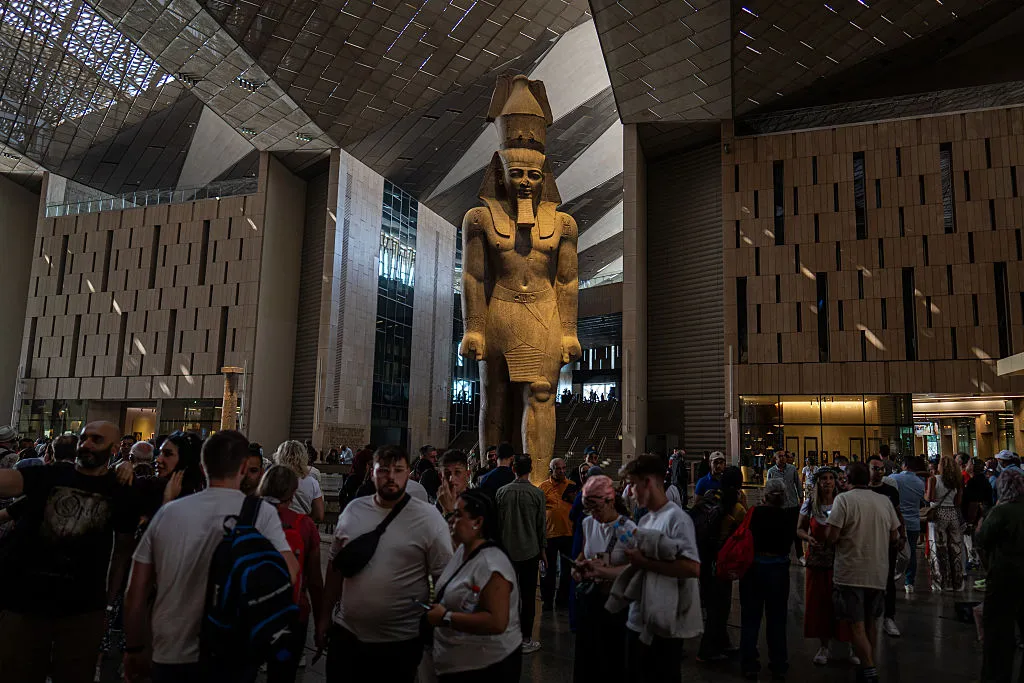The Grand Egyptian Museum, two-decades in the making and inaugurated earlier this month in a ceremony attended by world leaders, is not having a grand time with crowd control.
Only days after the museum opened on November 4, images surfaced on social media showing thousands of frustrated visitors spilling onto the nearby Giza plateau after being denied entry. In a televised statement on Friday, museum chief executive Ahmed Ghoneim said that more than 27,000 tickets had been sold—far beyond the daily limit of 20,000—and pledged to reassess the policies that caused the momentary chaos in Cairo.
Currently, tickets can be booked on online platforms and physical kiosks around the Egyptian capital, the same system that caused the over-issuance on Friday. Ghoneim said the museum would be switching to an online-only booking system starting next month. He added that management has struggled to accurately estimate visitor numbers given the consistently high volume of people moving in and out of the museum at any time.
A week later, the museum was under fire from Egyptians who had been unable to secure tickets for Sunday and Monday. Claims circulated online that the museum had reserved a disproportionately high share of tickets for foreigners at the expense of locals—an alleged 80-20 split that Ghoneim dismissed as a “rumor.” He said that the museum was developing a strategy to ensure a set percentage of tickets on any given day was allocated separately to Egyptians and foreign tourists, a measure intended to ease crowd control issues before they have a chance to escalate. The ratio, he said, would vary seasonally, but “will never exceed 60‑40” for either group.
According to Ghoneim, the museum recorded 15,200 visitors that disastrous Friday—56 percent of them Egyptian, which he cited as evidence that locals were not being excluded.
But not everyone was convinced. The National reported that Freddie El Bayady, a social democratic member of parliament (MP) and outspoken critic of government policy, submitted an official request on Saturday to abolish the ticket quota. “How can the citizen of this land find no place at the same time that a foreigner may enter freely?” he wrote, claiming that no comparable ticketing system exists in “any museum in the world.
“The heritage of our homeland is not a commodity,” the MP said. “The right of Egyptians in their own land is not up for negotiation.”
The long-awaited opening in November of the Grand Egyptian Museum (GEM), a $1 billion project, was attended by dozens of foreign leaders and dignitaries. The museum now ranks among the largest museums in the world, with a 968,000-square-foot facility housing a collection that spans some 7,000 years; an 80,000-square-foot gallery is dedicated alone to all 5,600 burial objects from King Tutankhamun’s tomb.
